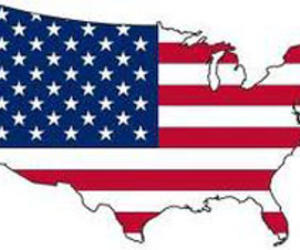Cuban spy’s ex-wife can’t collect on lawsuit
- Submitted by: manso
- Politics and Government
- 08 / 28 / 2011

A federal judge told Ana Margarita Martinez that she couldn’t garnish funds owed by South Florida travel companies to Havana.
A Miami judge has awarded a Cuban exile $2.8 billion in damages for the forced suicide of his father after Fidel Castro took power during the communist revolution in 1959. The man's attorney said it is the largest U.S. civil judgment ever against Cuba, though it's unlikely they will collect much of it.
ElNuevoHerald.com. A U.S. District Court judge in Miami has ruled that the jilted ex-wife of a Cuban spy cannot garnish funds that Havana is paid by South Florida companies that charter flights to the island because she does not have the required U.S. government license.
The ruling means that the eight charter companies will be able to pay Havana the money owed, estimated by Cuba travel industry experts at somewhere between $5 million and $10 million.
Judge Federico Moreno ruled that Ana Margarita Martinez could not garnish the money because she lacks the license to handle Cuban money issued by the U.S. Treasury Department’s Office of Assets Control. OFAC enforces all sanctions on Cuba.
Martinez won a $27 million judgment against the Cuban government in 2001 by arguing that it victimized her when it ordered spy Juan Pablo Roque to marry her. He returned to Havana just before Cuban warplanes shot down two Brothers to the Rescue airplanes in 1996, killing all four South Florida men aboard.
The lawyer for the eight charter companies, Ira Kurzban, said the ruling upheld the legal argument that he has been making since Martinez’s lawyers filed the writs of garnishment in February of 2010.
“I’ve said all along that the law was very clear that you could not garnish [Cuban] money without getting a license from OFAC,” he told El Nuevo Herald. “This lawsuit from the beginning was frivolous.”
Martinez attorney Tom Withrow said he would review the case and meet with his client next week to consider whether to appeal Moreno’s ruling. Martinez did not return messages seeking her comment. It was unclear whether Martinez would seek to obtain a license from OFAC.
The charter companies served with the writs of garnishment are Marazul, ABC, C&T, Xael, Wilson International Service, Cuba Travel Services, Airline Brokers and Gulfstream Air Charter.
Martinez tried to garnish the funds they pay to Cuban government entities, such as Havanatur, for landing rights, fuel, ground support and other services. About 70 U.S. charter flights a week land in Cuba.
The companies were legally required to withhold those payments from the day Martinez filed the writs of garnishment to the day the companies filed their reply in court, about 20 days, Kurzban said.
The total amount withheld was unclear because the companies could have been paying Cuba by the week, monthly or bi-monthly.
Initially, the charter companies and U.S. State Department officials warned that the flights to Cuba could be halted if Havana officials insisted on being paid. No flights were cancelled because of the lawsuit, however.
Martinez’s case has been batted back and forth between federal and state courts for much of its life, with her lawyers tugging it toward the presumably more friendly state court and the charter companies pulling toward the federal side. Moreno also ruled that U.S. courts have jurisdiction in the case.
Martinez has been able to collect only about $200,000 of her $27 million judgment, as Cuban funds exposed to U.S. seizures have slowly dwindled over the past decade.
Some of the Cuban funds, frozen since the early 1960s, were used to pay about half of the $187 million awarded to relatives of the four Brothers to the Rescue victims.
Earlier this week, a state judge in Miami awarded a record $2.8 billion to Gustavo Villoldo, a Bay of Pigs and CIA veteran.
Source: //www.miamiherald.com/2011/08/26/2376854/
Comments